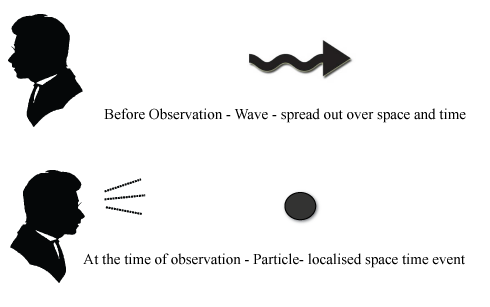Introduction
The Observer Effect is a powerful mental model that highlights the influence of observation on human behavior and decision-making. Rooted in human psychology, this concept asserts that individuals and groups can be influenced by the mere presence or awareness of being observed. Understanding the Observer Effect is crucial in decision-making processes as it reveals the hidden biases and subconscious pressures that can lead to irrational choices. In this blog post, we will explore the concept of the Observer Effect, examine its prevalence in our daily lives, provide real-life examples across personal, business, and public policy contexts, delve into the mental biases that contribute to it, offer practical strategies to identify and mitigate its impact, and underscore the importance of awareness and active avoidance of this mental trap.
Understanding the Observer Effect
The Observer Effect refers to the phenomenon where individuals modify their behavior or decision-making process when they are aware of being observed. It suggests that the act of observation itself can alter outcomes, introducing biases and affecting the authenticity of responses.
Relevance of the Observer Effect in Decision-Making
The Observer Effect has significant relevance in decision-making processes. Whether it’s a personal choice, a business decision, or a public policy consideration, the presence of observers can shape the outcome. Understanding and accounting for this effect is essential for making informed and objective decisions.
Examples of the Observer Effect in Various Contexts
- Personal Life Decisions: Imagine an individual making a career choice based on societal expectations and the fear of judgment. The mere presence of observers, such as family or friends, can heavily influence the decision, leading the person to choose a path that may not align with their true aspirations and potential.
- Business Scenarios: In a business meeting, the presence of influential stakeholders or executives can impact decision-making. Employees may conform to the perceived preferences or expectations of those observing, resulting in biased decisions that prioritize personal interests over the organization’s long-term goals.
- Public Policy-Making: The Observer Effect can influence public policy-making when policymakers are aware of media attention or public scrutiny. Their decisions may be influenced by the desire to maintain popularity or avoid criticism, potentially compromising the effectiveness and fairness of policy outcomes.
Mental Biases and Psychological Underpinnings
Several mental biases contribute to the Observer Effect:
- Social Desirability Bias: The fear of being judged or seeking approval can lead individuals to alter their behavior or decisions to conform to social expectations, even if it contradicts their true beliefs or interests.
- Authority Bias: Individuals may feel compelled to conform to the expectations of authoritative figures or prominent individuals, even if it goes against their own judgment or values.
- Evaluation Apprehension: The awareness of being observed can trigger anxiety and apprehension, causing individuals to modify their behavior in an attempt to present themselves in a favorable light or avoid negative judgment.
Strategies to Mitigate the Observer Effect
- Foster Psychological Safety: Create an environment that encourages open communication, where individuals feel comfortable expressing their thoughts and ideas without fear of judgment. This reduces the influence of the Observer Effect and promotes authentic decision-making.
- Encourage Diverse Perspectives: Actively seek out and consider diverse viewpoints and opinions. By incorporating multiple perspectives, decision-makers can mitigate the impact of the Observer Effect and reduce the risk of biased choices.
- Use Anonymous Feedback: Implement anonymous feedback mechanisms to collect input without the fear of identification or judgment. This allows for more candid and honest responses, minimizing the influence of the Observer Effect.
- Engage in Reflection and Self-Awareness: Encourage individuals to reflect on their decisions and motivations. Developing self-awareness can help identify instances where the Observer Effect may be influencing judgment and allow for more objective decision-making.
Conclusion
The Observer Effect is a crucial mental model that reminds us of the subtle influences observation can have on our decision-making. By understanding the psychological biases and social pressures associated with the Observer Effect, we can take steps to mitigate its impact and make more informed choices. Cultivating awareness and fostering environments that prioritize authenticity and diverse perspectives are key in overcoming this mental trap. By actively recognizing and addressing the Observer Effect, we empower ourselves to make decisions that align with our values and long-term objectives.
